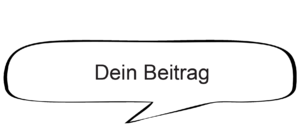Present - Gegenwart

Present - Gegenwart
Present - Gegenwart
Today, we'll explore the concept of "present" or "Gegenwart" in German, which refers to the current moment in time, not influenced by past or future events. This can also refer to the grammatical tense in languages used to describe actions that are currently happening.
Introduction
The present tense is one of the most commonly used tenses in English and German. It's used to describe actions happening right now, repeated actions, and general truths. This section will help you understand how to use and form the present tense in English, with a focus on helping German speakers learn English grammar rules.
Usage of the Present Tense
- Simple Present - Used for repeated actions, habits, and general truths.
- Present Continuous - Used for actions happening at the moment of speaking.
- Present Perfect - Used to describe actions that occurred at an unspecified time before now.
- Present Perfect Continuous - Used to emphasize the duration of an action that started in the past and continues into the present.
Vokabel-Quiz: Teste Dein Wissen
Leicht
Wie sagt man "Ich spiele Fußball" auf Englisch? (I play football) (!I played football) (!I am playing football) (!I will play football)
Welches Wort ist nicht im Simple Present? (plays) (!playing) (!played) (!will play)
Was bedeutet "sie läuft"? (she runs) (!she ran) (!she is running) (!she will run)
Wie übersetzt man "wir lernen"? (we learn) (!we learns) (!we learned) (!we are learning)
Was ist die richtige Übersetzung für "er arbeitet"? (he works) (!he work) (!he worked) (!he is working)
Standard
What is the German for "they write"? (sie schreiben) (!sie schreibt) (!sie schrieb) (!sie haben geschrieben)
Wie sagt man "we are studying" auf Deutsch? (wir lernen) (!wir lernten) (!wir haben gelernt) (!wir lernen gewesen)
Which verb form corresponds to "sie kocht"? (she cooks) (!she cooked) (!she is cooking) (!she will cook)
Translate "you understand" into German. (du verstehst) (!du verstanden) (!du verstehen) (!du verstehst gewesen)
Welche Form ist im Simple Present? (he talks) (!he talked) (!he is talking) (!he will talk)
Schwer
Which sentence is in the present continuous? (She is dancing.) (!She dances.) (!She danced.) (!She will dance.)
Identify the present perfect form. (They have visited.) (!They visit.) (!They visited.) (!They will visit.)
Which option is in the present perfect continuous? (He has been running.) (!He runs.) (!He ran.) (!He will run.)
What does "it rains" translate to in German? (es regnet) (!es regnete) (!es wird regnen) (!es hat geregnet)
Choose the correct translation for "we have been playing." (Wir haben gespielt.) (!Wir spielen.) (!Wir spielten.) (!Wir werden spielen.)
Memory
Leicht
| Spiel | game |
| Uhr | watch |
| Tag | day |
Standard
| Schreiben | write |
| Hören | listen |
| Springen | jump |
| Rennen | run |
| Lachen | laugh |
Schwer
| Entwickeln | develop |
| Untersuchen | investigate |
| Überzeugen | convince |
| Berechnen | calculate |
| Beobachten | observe |
| Erklären | explain |
| Entscheiden | decide |
Kreuzworträtsel
| football | Wie sagt man "Fußball" auf Englisch? |
| write | Was bedeutet "schreiben" auf Deutsch? |
| watch | Was ist ein Synonym für "beobachten" auf Englisch? |
| develop | Wie übersetzt man "entwickeln" ins Englische? |
| listen | Was ist das Gegenteil von "sprechen" auf Englisch? |
| calculate | Wie sagt man "berechnen" auf Englisch? |
| day | Was ist "Tag" auf Englisch? |
LearningApps
Lückentext
Links
Teilen - Diskussion - Bewerten
Schulfach+

aiMOOCs



aiMOOC Projekte



KI-STIMMEN: WAS WÜRDE ... SAGEN? |
|
|






























